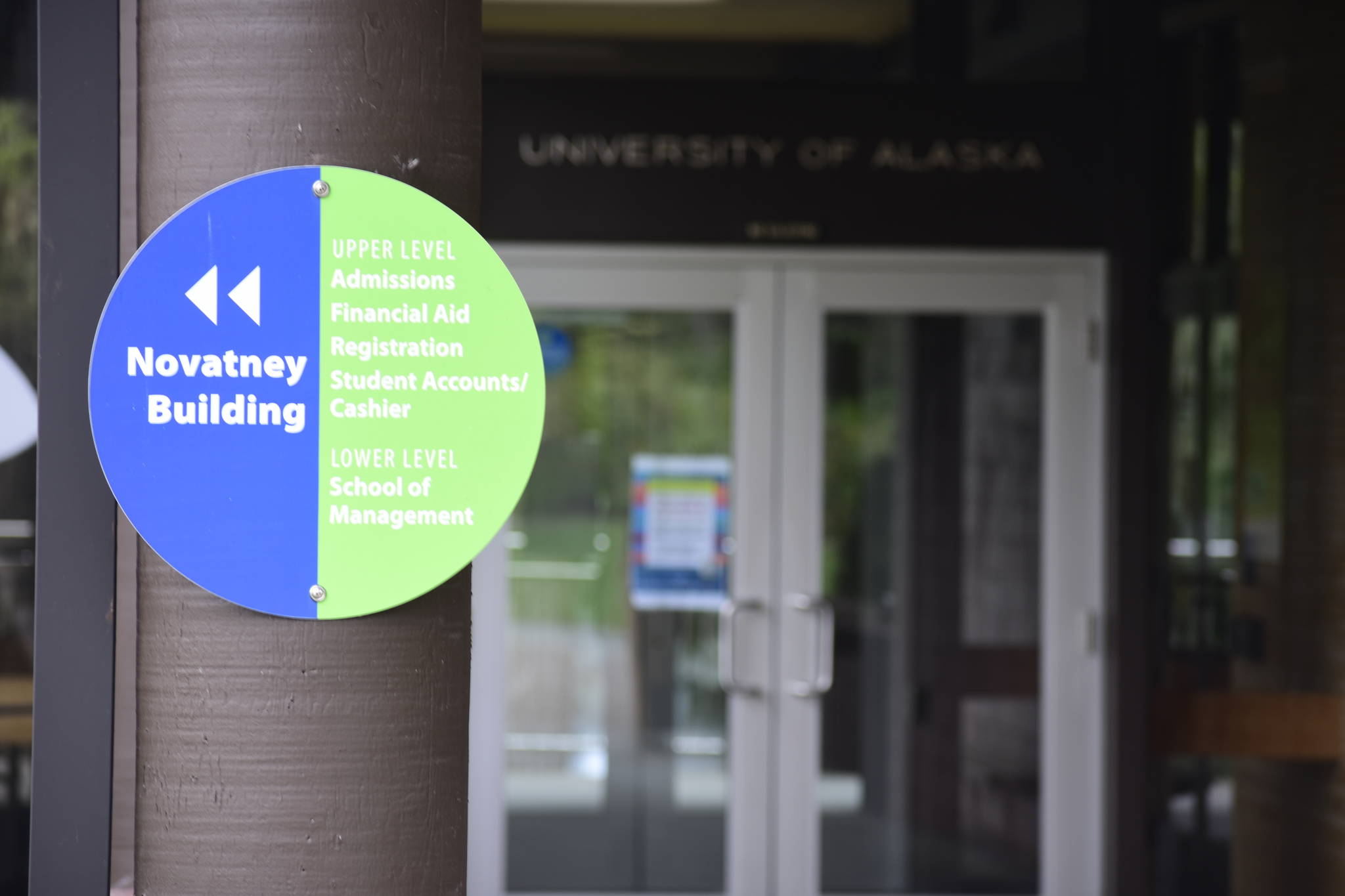Drastic changes are coming to the University of Alaska system, according to university President Jim Johnsen.
Johnsen said in a video press conference Thursday that the UA system anticipates a budget deficit of $24.8 million in Fiscal Year 2021.
“The gap in (FY22) is more uncertain,” Johnsen said. “We don’t know yet what our enrollment will look like.”
The university system had been struggling for years, Johnsen said, noting that enrollment had been in decline since 2011. Cuts to the state budget had already caused reductions in university programs and services when the COVID-19 pandemic disrupted the world’s economy.
In a May 13 presentation to the UA Board of Regents, Johnsen outlined several ways the university system could make massive reductions. The university system had already made significant cuts, Johnsen said, and the gravity of the current circumstances call for larger, structural changes to the system as a whole.
“We’ve exhausted the little stuff so now we need to start looking at the larger structure,” Johnsen said.
That means drastic and difficult decisions. Options proposed by Johnsen include cutting over 50 degree programs and potentially merging University of Alaska Southeast with one of the other two universities. Those changes are going to be disruptive and unpopular, Johnsen said, but they needed to be made.
[University of Alaska Southeast could be absorbed by another university]
“We take (public) inputs very seriously but we still have to make the tough decisions, that is our reality,” Johnsen said. “I don’t think there’s going to be a rainbow bridge with tens of millions of dollars.”
The regents will meet June 4-5, to discuss the future of the university system and could potentially vote on a change at that time. However, they could also ask for more information regarding various options, Johnsen said, and take no immediate actions.
Regents heard from members of the public Tuesday evening, as people from across the state and abroad called in to voice their support for various programs and to urge against a merger.
UAS Chancellor Rick Caulfield said he was “very concerned” by the option and had voiced his concerns to Johnsen. Caulfield is planning to retire in June, and so far no replacement has been named. There are three potential candidates Johnsen said, but all of them are out of state and the 14-day quarantine for out-of-state travelers is making in-person interviews difficult.
Furthermore, if the regents decide next Tuesday they want to move ahead with the merger option, the position will no longer be needed, Johnsen said. According to Johnsen, if the regents signal they don’t want a merger, that interview process will continue promptly. An interim chancellor would likely be named he said, but one had not yet been chosen.
Even with all the difficulties, Johnsen said he remained optimistic about the university system’s future.
“COVID has magnified some of our strengths. We have epidemiologists and economists,” Johnsen said. “It’s also certainly magnified weaknesses.”
[University cuts are difficult but manageable, UA president says]
Many of UA’s students were already taking classes remotely, and 50% of the credits issued at UAS last year were online credits Johnsen said.
“Students have by their own choices, gone online. We’ve invested and we continue to invest in (online services),” Johnsen said. “Many, many students want that flexibility. right now we’re seeing that (trend) in the country.”
There will be an opportunity for public comment to be given directly to the regents on Tuesday, June 2, from 4-6 p.m. Call 1-866-726-0757
Written comments can be submitted by email at any time at ua-bor@alaska.edu.
Contact reporter Peter Segall at psegall@juneauempire.com. Follow him on Twitter at @SegallJnoEmpire.

